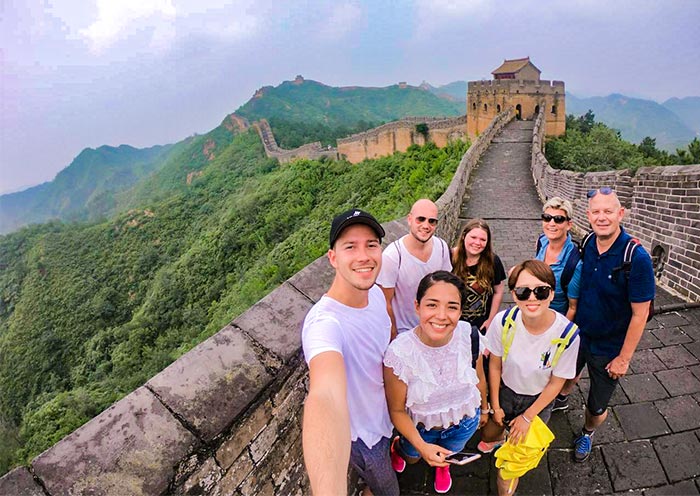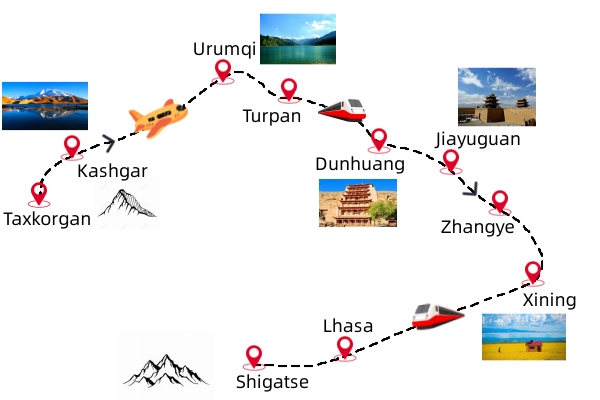1. Tip: Negotiate to increase your salary by starting at a low level and being courteous. To demonstrate that you're serious about your offer, be respectful and firm.
Pro: Makes it easier to establish your position with no offending seller.
Pros: Starting with an affordable price may frustrate sellers, particularly when selling items with fewer margins.
2. Find out what the market value is
Do your homework to find the price that is typical for the item you want to purchase.
Pro: Prevents being swindled and provides confidence during negotiations.
Con: Researching for products that are original or made by hand will take some time, especially in the case of handmade goods.
3. Show Genuine Interest
TIP: Sellers might be more willing than usual to negotiate with you, if they think that you are truly interested in purchasing.
Pro: Creates a rapport with the customer and increases their chances of obtaining an affordable price.
Con: Overenthusiasm may indicate willingness to spend more, which could weaken your credibility.
4. Step Away Strategically
Tips - If the price does not drop, slowly walk away. You could get a message from the seller with a higher offer.
Pro The strategy works well to obtain the lowest price.
Con: The seller may not be willing to cut prices on certain products particularly those that are in high demand.
5. Learn Basic Mandarin Phrases
Tip: Phrases like "Tai gui le!" (Too expensive!) It's expensive! You need to show some effort.
Pro This makes the bargain more personal and may often soften the seller's position.
Con: Using a limited vocabulary may not be helpful in more complex negotiations.
6. Be Patient and Calm
Negotiations are lengthy. To avoid looking anxious, maintain a calm and composed demeanor.
Pro Sellers reward calm and persistent buyers with better deals.
Cons: Takes time and energy especially in busy markets.
7. Bring Cash
It is possible that sellers are willing to lower the cost if you pay cash instead of using digital payment methods.
Pros: Cash offers that are that are immediate are a great way to get discounts from smaller vendors.
Con: Carrying cash in crowds could be risky due to pickpockets.
8. Discounts on Group Reservations
Request a discount if you're purchasing multiple items.
Pro: You will increase your bargaining strength and get more bargaining power and a better price.
Cons: Purchases could cost more than you will need, and they may not be the best fit for your needs.
9. Do not be afraid affirm"no"
Tips - Be polite and decline in the event that the seller is unwilling to agree to lower the price.
Pro: This helps to prevent buyer's remorse. It also ensures you are within your budget.
Con: You might miss out an item that you really desired.
10. How to avoid bargaining
Tip: Bargaining is not recommended in department stores or in high-end boutiques.
Pros: Prevents embarrassment while keeping respect for culture.
Limits to your negotiation options when you are in certain settings
The benefits of bargaining in China
Saves Money: Negotiating can significantly reduce the cost of items.
Cultural Experience: Engaging in bargaining can provide insights into local customs and customs.
Personal Interaction: Creates an interaction with local vendors.
The cons of bargaining in China
The process of bargaining can be time-consuming, particularly for those who are new to shopping.
Communication issues can occur if you don't know basic Mandarin.
The process of bargaining can be stressful for certain individuals.
With these suggestions, you'll be able to use these tips to navigate Chinese markets with confidence and you can even enjoy the art of haggling! View the recommended learn why this spot is so famous for blog recommendations including hohhot transportation, lion forest garden suzhou classical garden, xiamen, shopping in dunhuang, tips for identifying copyright, chinese wood carving originated in neolithic period, ancient dapeng fortress, chinese knot which has a long history and a symbolic meaning, eating in zhengzhou, shopping in kashgar and more.

Top 10 Tips For Visiting Famous Temples In China During The Holiday Season
1. Visit during the off-season, Autumn/WinterTip: If you are planning to visit famous temples during the off season (autumn/winter) that typically falls between November and February, consider visiting them. This is the time when there are fewer tourists and temperatures are cooler.
Pro It is less crowded and offers a more tranquil and serene experience.
Con: The weather can be colder, which could make outdoor temple tours more uncomfortable.
2. Be Prepared for Extreme Weather
The temperatures can be quite different during different seasons. Summer is often humid and hot, while winters can often be freezing. Dress according to the weather forecast.
Pro: You'll be able to prepare for any type of weather, guaranteeing comfort during your visit.
Con: Having to pack for extreme weather conditions can be difficult If you're traveling in a small amount.
3. Visits in the Spring and Summertime to view Vibrant Flora
Tip : You can visit temples during the first days of spring, and also in the summer. It is during this time that you will find gorgeous gardens, beautiful blooms, and beautiful landscapes all around.
Visit the temple grounds to enjoy the stunning surroundings.
Con: Summer can be very hot and packed, especially during national holidays.
4. Take into consideration festivals and special events.
Make sure to plan your trip around events like the Mid-Autumn Festival or Chinese New Year. These periods offer festivities, rituals and a chance to experience the temple's vibrant cultural activity.
Pro: Temples frequently host lively traditional events and offer a the most unique, thrilling experience.
Con: Temples may be very crowded during times of festivals, and price of lodging can rise.
5. Beware of the Peak Holiday Seasons
TIP: Avoid visiting during the high tourist season (e.g., Chinese New Year, Golden Week in October) where temples are packed with local and international visitors.
Pro: More peaceful experiences without crowds, providing a more spiritual experience.
Con: You could miss out on some special festival events when they are at their highest.
6. Make sure to check for Temple Closures in Winter
Tip: Certain temples may shut down or operate with restricted hours in winter, especially those located in remote areas or the northern regions. Always check before you go.
Pro: Avoids unnecessary trips and lets you plan other activities in advance.
Con: There could be reduced hours of operation or temples completely closed for reconstructions.
7. Early Morning Visits in the Summertime
If you're going to the temple in summer, try to arrive early in order to avoid the heat of midday. Many temples have their doors open earlier in the early morning. This is more peaceful and there are fewer visitors.
The cooler temperatures and lack of crowds make for a more peaceful vacation.
Cons Cons: Getting up early may not be for everyone.
8. Be prepared for rain in Summer
A tip: Summer can be a time of heavy rain, particularly in the southern part of China. If you're planning to visit during this time bring an umbrella or rain gear to ensure you are comfortable.
Pro: The temple remains gorgeous even if it's pouring rain.
Cons: Rain can cause outdoor activities to be disrupted and temple grounds to be slippery.
9. Visit temples in the mountains during autumn
The autumn foliage is a stunning scene and is the ideal time to go to the mountains (e.g. Mount Wutai).
Pro: The view and the cooler temperatures make hiking and outdoor exploration more enjoyable.
Con: Popular mountain temples are still popular with tourists, especially during weekends or holidays.
10. You can utilize the lunar calendar to plan certain dates for your
Tips - A lot of temples in China make use of the lunar calendar. Certain rituals and events are also tied to certain lunar dates. Check out the calendar for important events, such as the Lantern Festival, Buddha's Birthday and other temple events.
Pros: Discover distinctive cultural practices and gain deeper understanding of the local traditions of spirituality.
Cons: The lunar calendar may force you to plan your trip with more care and may not match up with the events that are taking place at the moment.
Benefits of going to Chinese temples during the season
There are fewer crowds. Off-season travel offers a quieter, more contemplative travel experience.
Festivals are an excellent way to immerse yourself in the cultural and religious traditions of your region.
Scenic Beauty: Spring or fall is the ideal time to go for breathtaking landscapes, vibrant gardens, and temples.
Tempel exploration is more pleasant in the autumn and winter months.
Pros and Cons of the Seasonal Chinese Temples Visits
Unpredictable weather: Winter can be very cold, and the summer too hot. This could affect your comfort.
Temple Closures - Some temples will close in extreme weather or when they have only a few hours.
Afraid of crowds during festivals: The most popular festivals and holidays can attract huge crowds, making it difficult to fully appreciate the temple's tranquil atmosphere.
Limited Activities: Some seasonal events or ceremonies are not possible when you are visiting outside of the right time frame.
Pick the best time for visiting China's most well-known temples and plan your trip accordingly. It will guarantee that you will have a memorable trip. Understanding the dynamics of the seasons is crucial to making the most of your excursion. See the most popular check out this travel guide for website recommendations including eating in lanzhou, eating in dunhuang, binhai aircraft copyright theme park in tianjin, shopping in kashgar, chinese furniture the development history of chinese furniture, xishuangbanna, jinan transportation, hohhot transportation, the color of dress in china, kweichow moutai the best and most famous liquor in china and more.
